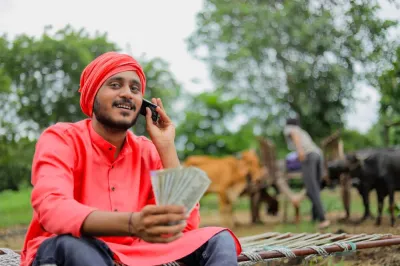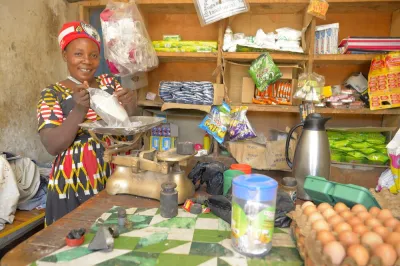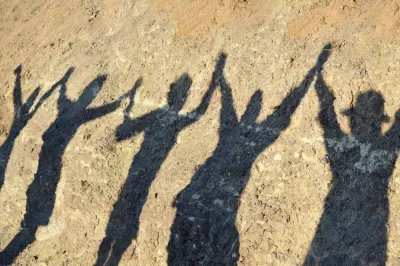Speaking the Common Language of the SDGs
Jean-Marc Debricon is the General Manager of Alterfin Cvba, a Belgium-based financial cooperative supporting sustainable development through microfinance, sustainable agriculture and other environmental impacting investments. Alterfin is active in 37 countries throughout Africa, Asia and Latin America and in the course of 2018 disbursed approximately EUR 66 million to 175 microfinance institutions, agriculture SMEs and smallholder producer organizations.
FinDev: Your organization, Alterfin, is a new sponsor of African Microfinance Week (SAM). What inspired you to get involved with supporting SAM? And what do you hope to get out of the event this year?
Jean-Marc: Africa is not new to Alterfin. Since its inception 25 years ago, Alterfin has been investing in rural microfinance and sustainable agriculture in the Global South in general and Africa in particular.
But in the last five years we have tripled our financing activity in Africa, which now accounts for almost a third of our total activity. On top of our Brussels-based team, we also have two local investment managers based in Nairobi and aim to have one more in West Africa. We are committed to finding more financing opportunities for Alterfin in Africa.
SAM is a great opportunity for us to meet the representatives of microfinance and farmers’ organizations and exchange views on mutually beneficial partnerships with substantial social impact.
FinDev: The theme for this year’s African Microfinance Week is “Pathways Towards Impact: African Inclusive Finance for the Sustainable Development Goals (SDGs)” - closely aligned with your organization’s mission. As a social investor focused on supporting sustainable development, how do the SDGs frame your work?
Jean-Marc: After the SDGs were adopted by the United Nations General Assembly, we decided to organize a strategic brainstorming involving the whole team and our board of directors. It gave us a perfect opportunity to rethink our mission and redefine it within the framework of the SDGs - and that’s exactly what we did.
But beyond the definition of our own mission or the referencing of SDGs 1, 2, 5, 8, 12, 13 and 17 in our annual report, we found other advantages to using the SDGs. They help us interact and discuss impact with other impact investors. One could view the SDGs as a “common language” that we can all use to better understand each other’s positioning.
However, this was not enough for us. We decided to go one step further, investing time and resources in the redefinition of our Environmental and Social Performance Management (ESPM) framework. We developed clear environmental, social and economic performance metrics, as well as a set of indicators that allow us to assess Alterfin’s value added. The framework aims to support Alterfin at different stages to maximize our social, environmental and economic impact. First, by helping us to better select projects that have the potential to achieve greater impact. And second, by enabling us to analyze ex-post how we performed and adjust future investments accordingly.
One could view the SDGs as a “common language” that we can all use to better understand each other’s positioning.
If the SDGs provide a common language, our ESPM framework is the dialect which expresses the details and nuances of our actions.
FinDev: Can you tell us a little bit about Alterfin’s structure and how you operate? You have over 6000 shareholders, whom you call coop-members. How do they participate in your work?
Jean-Marc: Alterfin is very different from many impact investors. We do not have funds under management from pension funds or from financial institutions. Most of our capital comes from private individuals, people like you and me, who decide to invest some of their savings in an alternative, fairer, more transparent and altogether more responsible financing model.
Each year, we have about 150 to 200 coop-members attending our General Assembly, where we present our annual results, conduct voting and engage with our members. Coop-members vote on a number of items including the distribution of dividends, appointing new Board members and renewing the mandate of the external auditors. But the event also offers an opportunity for coop-members to express their views on our work, and some can be very vocal about it. I will never forget how at my first Alterfin general assembly back in March 2015, some coop-members stood up and called me out. I expected them to express concerns about growing risk in agriculture. But it was quite the opposite. They complained because they thought we were not doing enough in Africa! They wanted us to take on more risk and grow our activity in Africa. Well, we listened and did just that!
While Alterfin is strongly capitalized, our greatest asset is our team’s and our 6,000+ coop-members’ commitment towards social, environmental and economic sustainability.
FinDev: Alterfin is particularly dedicated to the rural and agricultural sector and I see that you will participate in a panel at SAM entitled, “Enabling Rural Finance: multisectoral collaboration to facilitate increased rural opportunity.” What are the key types of collaboration that you think are still missing and needed to expand rural finance?
Jean-Marc: Our main purpose is indeed to expand rural finance. To achieve this, we either invest indirectly, by financing predominantly rural microfinance organizations, or we invest directly, by financing SMEs and producer organizations of smallholder farmers.
But rural financing is not without perils. Climate change has a direct impact on smallholder farmers and this is reflected in higher defaults and lower recoveries especially when investing directly in agriculture.
To address this, Alterfin joined forces with like-minded social lenders dedicated to rural finance and, together, we founded the Council on Smallholder Agriculture Finance (CSAF). Each year CSAF members disburse a total of EUR 700 million in sustainable agriculture. We also agree on common reporting standards to reduce the workload of our investees. To help attract new investors to this sector, we produce annual state of the sector reports with the help of MIX and ad hoc reports with Dalberg. And our latest and probably most daring project is called “Aceli Africa.” It is a ground-breaking collaboration and I invite you to attend my panel at SAM to hear more about it.
While Alterfin is strongly capitalized, our greatest asset is our team’s and our 6,000+ coop-members’ commitment towards social, environmental and economic sustainability.
FinDev: There is much talk of how digital financial services and access to mobile phones could transform rural and agricultural finance and make it much more accessible. Do you see this happening? Should we believe the hype? Is Alterfin investing in any fintech or digital finance initiatives?
Jean-Marc: Bringing financial inclusion to low-density remote rural areas doesn’t come cheap. The challenge for many rural microfinance organizations is to keep their operational costs under control and provide products to their clients at decent rates.
Fintech or digital finance initiatives seem to offer the best opportunities to achieve just that. However, that doesn’t mean that all fintech initiatives will be successful. Our view is that one needs to understand first the specific microfinance market and the needs of its clients, then engineer a fintech solution.
This is why Alterfin decided to invest in Musoni System, an award-winning cloud banking system which helps microfinance organizations reach low-income individuals in rural areas by reducing their operational costs, improving systems and even integrating a Progress out of Poverty Index (PPI) so that MFIs can monitor the social impact of their operations. Musoni now works with 90 MFIs, serving over a million end customers across 15 countries. More than 70 percent of their customers are below the $2.50 poverty line and 77 percent are women, traditionally the populations most excluded from financial services.



Very inspiring from board members to walk the talk in committing their financial investment to create more impact for a better social performance and financial inclusion. a job very well done. God bless Africa and all those who support serving vulnerable and low income people especially women. Thank you Jean-Marc Debricon for all your efforts.
Leave a comment